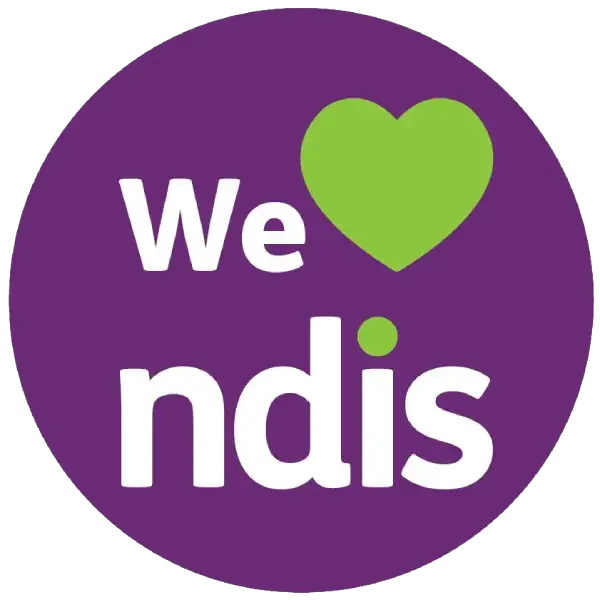Enquire about our SIL vacancies
Healthcare and community services are essential to maintaining the well-being of individuals, particularly as they grow older or face chronic health conditions. Two commonly used terms in this context are HCPs (Healthcare Professionals) and CHSP (Community and Home Support Program). While both are integral parts of the healthcare system, they cater to different needs and focus on distinct aspects of care.
In this blog post, we’ll explore the detailed differences between HCPs and CHSPs, their roles in patient care, and how they contribute to improving the quality of life for individuals. Understanding the key distinctions between these two types of services can help you navigate healthcare options, whether for yourself or a loved one.
What is an HCP?
HCP stands for Healthcare Professional, and this term encompasses a wide range of trained individuals who work in the medical and healthcare fields. HCPs provide direct medical care to patients and are responsible for diagnosing, treating, and managing various health conditions. They have specialized training in their respective fields and are often required to obtain formal certifications and licenses to practice.Types of Healthcare Professionals (HCPs)
Healthcare professionals can be categorized into different roles based on their expertise. Some of the key categories of HCPs include:-
Doctors:
- General Practitioners (GPs): These physicians provide primary care services, including routine health check-ups, diagnosing common conditions, and referring patients to specialists.
- Specialists: Doctors who have advanced training in specific medical fields, such as cardiology (heart), oncology (cancer), and pediatrics (children’s health).
- Surgeons: Medical professionals who perform surgeries to treat or correct conditions, ranging from minor procedures to major operations.
-
Nurses:
- Registered Nurses (RNs): Nurses who provide direct patient care in hospitals, clinics, or home settings, including administering medications and monitoring patient conditions.
- Nurse Practitioners (NPs): Advanced practice nurses who can diagnose and treat medical conditions, prescribe medications, and often serve as primary care providers.
- Licensed Practical Nurses (LPNs): Nurses who provide basic patient care under the supervision of registered nurses or doctors.
-
Physiotherapists (Physical Therapists):
- These professionals focus on restoring physical movement and function through exercises, manual therapy, and rehabilitation techniques, helping patients recover from injuries, surgeries, or chronic pain.
-
Pharmacists:
- Experts in the use of medications, pharmacists provide advice on prescriptions, ensure the safe use of drugs, and educate patients on potential side effects and drug interactions.
-
Mental Health Professionals:
- Psychologists: Trained in psychotherapy and behavioral therapies, psychologists help individuals address mental health concerns like anxiety, depression, and trauma.
- Psychiatrists: Medical doctors specializing in the diagnosis and treatment of mental health disorders, including prescribing medications and providing therapy.
-
Dentists:
- Dental professionals who diagnose and treat conditions related to the teeth, gums, and mouth, ensuring proper oral health and hygiene.
Key Responsibilities of HCPs
- Diagnosis: HCPs are responsible for assessing symptoms, performing diagnostic tests, and determining the nature of the illness or condition.
- Treatment: Based on the diagnosis, healthcare professionals provide treatment plans, which can include medication, physical therapy, surgical interventions, or referrals to specialists.
- Monitoring Health: HCPs are crucial in monitoring patients’ health conditions, tracking progress, and making adjustments to treatment plans as needed.
- Education and Counseling: They also provide education about health, wellness, and prevention, empowering individuals to make informed decisions about their care.
What is CHSP?
CHSP stands for Community and Home Support Program, which is designed to assist individuals in living independently in their own homes or within their communities, especially when they face age-related or health-related challenges. The main goal of CHSP is to help people who need extra support to maintain their quality of life and continue to engage with their communities, without necessarily requiring full-time medical care.Core Features of CHSP
The Community and Home Support Program is often focused on providing non-medical care and assistance to individuals, particularly the elderly or those with disabilities. CHSP services are community-based and help individuals continue living at home rather than in a hospital or care facility.Key Components of CHSP
Some of the main services provided under the CHSP include:-
Personal Care:
- Help with activities of daily living (ADLs), such as bathing, dressing, grooming, and toileting.
- Assistance with mobility or transferring from a bed to a chair.
-
Domestic Assistance:
- Help with household chores like cleaning, laundry, and meal preparation.
- Assistance with grocery shopping or organizing household items.
-
Social Support:
- Companionship and social interaction to reduce isolation, such as attending social activities, organizing outings, or just providing a regular visitor.
- Assistance in arranging or attending community events or group activities.
-
Transport Services:
- Assistance with getting to medical appointments, grocery stores, and social gatherings.
- Providing transportation for individuals who can no longer drive or rely on public transport.
-
Respite Care:
- Short-term relief for caregivers, allowing them to take a break while ensuring that the individual continues to receive necessary support.
- Providing temporary care during a caregiver’s absence or emergency situation.
-
Health-Related Support:
- While CHSP services are not medical in nature, they may include basic health-related tasks such as medication reminders or monitoring vital signs like blood pressure or weight.
Who Can Benefit from CHSP?
- Older adults who may struggle with mobility or daily tasks due to aging.
- Individuals with disabilities or chronic conditions who need help with maintaining their homes.
- People recovering from surgery or illness who require assistance while regaining independence.
- Caregivers who need support to take time off while ensuring that the care recipient is properly looked after.
Key Differences Between HCPs and CHSP
While both Healthcare Professionals (HCPs) and Community and Home Support Programs (CHSP) focus on enhancing individuals’ well-being, they differ significantly in their approach, scope, and objectives. Below, we’ll examine these differences in more detail:Nature of Services
- HCPs provide medical care and treatment. This includes diagnosing, prescribing, administering therapies, and performing medical procedures.
- CHSPs provide non-medical support services aimed at assisting individuals with daily living tasks, social engagement, and maintaining independence.
Medical vs. Non-Medical Focus
- HCPs focus on clinical and medical interventions, such as treating illnesses, managing chronic conditions, and providing therapeutic care.
- CHSPs provide assistance with daily activities but do not involve medical treatment or diagnosis. Instead, they support physical, emotional, and social well-being.
Professional Qualifications
- HCPs require formal education and professional training in healthcare fields (such as medicine, nursing, physiotherapy, etc.), which typically involves degrees, certifications, and licensing.
- CHSP workers may have vocational or on-the-job training, but they generally do not require the same level of formal education or clinical training as healthcare professionals.
Work Environments
- HCPs work in healthcare facilities, such as hospitals, clinics, doctor’s offices, and rehabilitation centers.
- CHSP services are typically delivered in home and community settings, providing support directly to individuals in their own homes or within local community spaces.
Duration of Engagement
- HCPs are typically engaged for short-term or intermittent care, such as when an individual is ill, undergoing surgery, or requires long-term medical management.
- CHSP services are ongoing and designed to support independent living over extended periods, often provided continuously or regularly.
When Do You Need an HCP vs. CHSP?
- HCPs are necessary when medical attention is required, such as for diagnosing and treating health conditions, performing medical procedures, or managing a chronic illness.
- CHSP services are essential when an individual needs support to live independently in their home and community. This includes help with personal care, housekeeping, social engagement, and transportation.
Conclusion
Understanding the differences between Healthcare Professionals (HCPs) and Community and Home Support Programs (CHSPs) is crucial for making informed decisions about healthcare and support services. While HCPs are responsible for providing medical care and treatment, CHSPs help individuals with daily living activities and offer social and emotional support. At Ambition Health Group, we believe that navigating these services with clarity and understanding is essential for ensuring you or your loved ones receive the right care. Whether you need medical attention from an HCP or assistance with maintaining your independence through a CHSP, our team is here to guide you in accessing the best resources for your health and well-being.Recent Posts
Top Rated Services
Get A Quick Quote Now
Enquire about our SDA vacancies
Enquiry Now
Consult Our Care Experts
Grab Your Free Consultation Today!
Or give us a call to speak to someone now
1300 668 655









